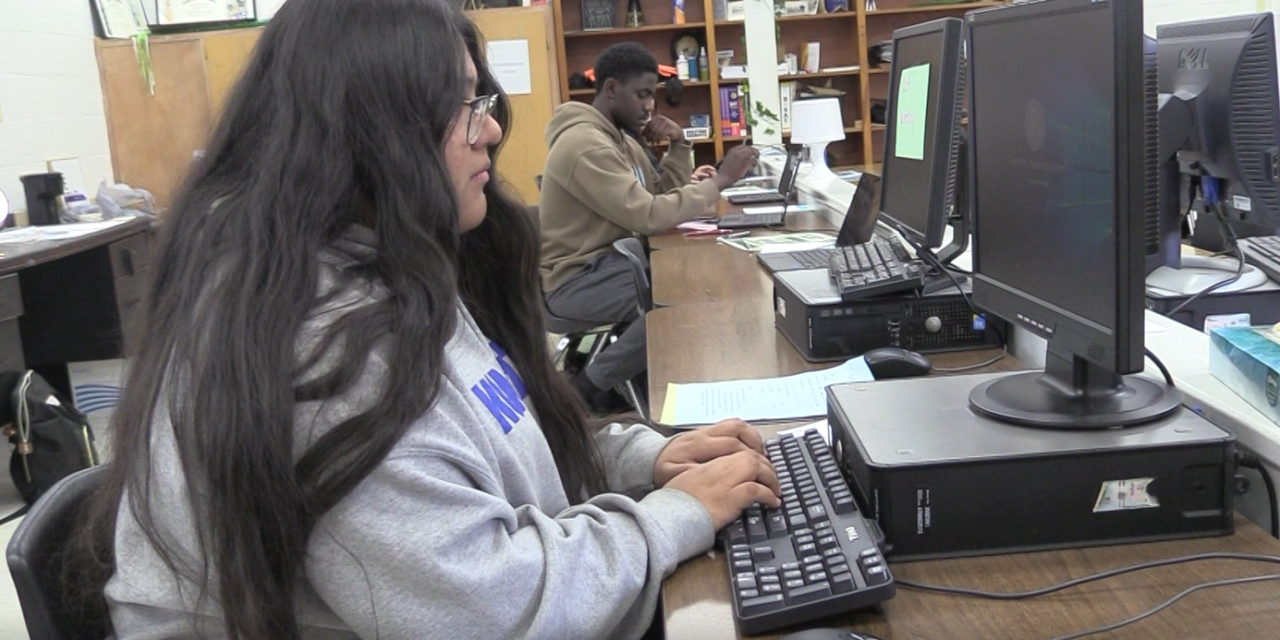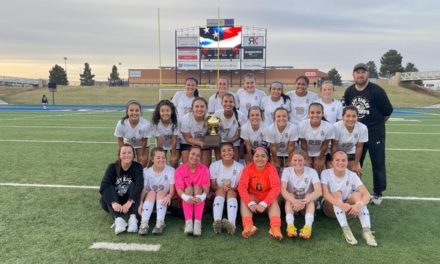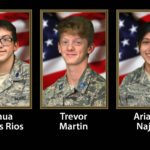By Jane Hakiymana
The AEF COOL program offers college planning assistance to students, specifically seniors that are currently applying for college and scholarships in preparation for their education beyond high school.
COOL, which stands for College Offers Opportunities for Life, counselors are the counselors who assist in the college searching journey. They assist with fee waivers, college recommendations, Free Application for Federal Student Aid (FAFSA) aid, college search aid, assisting in the search and application of scholarships, and so much more. With all college and scholarship help, students can talk to Tamika Braye, the school COOL counselor, who works with students with anything college related.
“I want students to start applying for college now until Christmas break, so they can get it out of the way,” Braye said. “After Christmas break, I want students to focus on scholarships.”
Most colleges open their applications in August or September, and most deadlines range from November-February. Common Application better known as Common App, and the Coalition App are the two most common sites for students to use to apply to multiple colleges. ApplyTexas is the app for students wanting to apply to schools in Texas. Individual college websites also have applications on their sites if not on the three listed sites.
“I recommend students apply to five to seven schools, I want them to look at all types of schools from junior colleges to state schools to private schools,” Braye said. “I want students to weigh their options and not apply to one type of school.”
Senior Alexandra Gonzales has already been accepted into two schools: Mary-Hardin Baylor and Angelo State University, both in Texas. She met the ASU requirements, was accepted before the school year started, and applied to Mary-Hardin Baylor early in the school year. Gonzales said that despite having two college acceptance, she has yet to be accepted to her dream school which is the University of Washington, which she is currently working on applying to. Gonzales plans to send applications to around 25 more schools.
“I applied to many schools because I’m the type of person that has to have a backup plan from another backup, I’m not saying that you have to do 25,” Gonzales said. “You can just do the much as you want. Personally, for me, I need a backup plan from a backup plan.
More than 450 colleges and universities offer early action or early decision. For students applying early, the most common deadlines for early action and early decision are November 1 and November 15. Early action plans are non-binding, but early decision plans are binding, meaning if a student is accepted into the college, they must withdraw applications from all other colleges. Regular decision deadlines vary depending on the college, most however are due sometime in early 2023. May 1 is National College Decision Day, which is the nationally recognized deadline for students to submit their acceptance and make a deposit to attend the four-year college or university of their choice. There are, however, several hundred colleges that accept applications and admit students until the start of the fall semester. These colleges are known as “late application” or “late deadline” schools.
“Early decision is binding, I have to sign on it, the student has to sign on it, and their parent has to sign on it, it’s like being married to the school,” Braye said. “Early decision, you just get your answer from the college earlier.”
The term, scholarship, refers to free money that comes from different sources and does not require repayment. Scholarships are merit-based, need-based, or student specific. Scholarships are available year-round with deadlines ranging from August 2022 through August 2023. The U.S. Department of Labor offers a free scholarship search tool for students to access thousands of scholarships by award type, state of residence, level of study, and special categories such as race or disabilities. For scholarship access, join the counselor’s google classroom using code WMNN3EO or go to Braye’s office for scholarship information.
“Today, two new scholarships just opened up,” Braye said. “The Community Foundations of Abilene scholarships and the Matched Horse Race scholarship. Forms for both of those scholarships can be found on the counselor’s google classroom or in my room.”
The FAFSA form is completed by current and prospective college students in the United States to determine their eligibility for student financial aid, loans, and grants. As a graduation requirement, seniors must complete the FAFSA to determine their financial aid eligibility. To be exempt from filling out the FAFSA, you must fill out the opt-out form.
“If students decide that they are joining the military or going to work after high school they can come to my office to fill out an opt-out form,” Braye said. “With the FAFSA opt-out form, the student signs it, and if they’re under 18 their guardian or the academic counselor also has to sign it, then we give it to Mrs. Siburt.”









